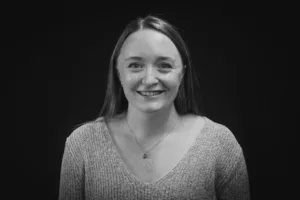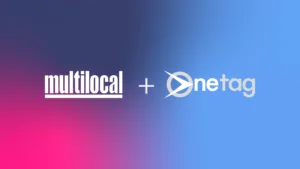Around five and a half years ago, The Programmatic Advisory was founded to offer programmatic consultancy to the world’s leading advertisers. But, since then, a lot has changed. The business has grown, and now applies its services to solving wider digital advertising use cases, rather than just programmatic ones. Because of this, the consultancy has opted to drop the term ‘programmatic’ from its name, and update the brand to become TPA Digital.
This update has also seen its training site, The Programmatic University, rebranded as TPA Academy.
“We came to the conclusion mid-last year that, though The Programmatic Advisory is a great name that explains what we did, it’s actually not what we do anymore. We do much more beyond that,” says Wayne Blodwell, Founder & CEO of TPA Digital. “The term ‘programmatic’ is also so controversial. I don’t know why, but people get annoyed by it. So, we thought we’d drop it from our name, and make it the TPA.”
Time for a change
The consultancy decided it was the right time to change the name for a number of reasons. The shift toward offering services across digital media, the challenges that brands have had to face over the past two years, and the way the perception of programmatic has changed all played a part in the decision.
Nonetheless, some would argue that the name of the business is still more-or-less the same – something that Blodwell is well-aware of, pointing to the name change as an “evolution” more than anything else.
“We’ve always been specialists. We’ve always been impartial. And we’ve always been consultants. We haven’t changed that – that’s still the same,” explains Blodwell. “The team criticises me, because I call it a ‘brand update’, not a ‘rebrand’. That’s why the ‘P’ is really just hidden within it. Our identity has evolved, as opposed to putting programmatic front and centre.
“We went through several names over several months, but we felt that TPA Digital made sense to our clients, how the market has evolved, and how we’ve evolved. But the fundamentals of the ‘impartial, specialist consultants’ haven’t changed.”
When it comes to how the consultancy will operate following the update, Blodwell is keen to stress that “we’re going to continue doing what we’re doing” across the business’ Operations, Technology, Data, Transparency, and Media pillars.
“We take a lot of pride in the fact that we don’t have cookie cutter products. We really tailor what we deliver to clients based on what they need – and that’s what consultancy should be. So, that remains, and that’s really our focus this year,” Blodwell says.
Blodwell also believes that by removing ‘programmatic’ from the name, more conversations will be opened up with brands, as the business looks to build on the 125% growth it experienced in 2021.
“When I started five and half years ago, and registered the name of ‘The Programmatic Advisory’, and went to market, everyone had an opinion on the name,” he adds. “A lot of people thought the business would die, because programmatic was going to die. So, it’s almost vindication that programmatic still exists, and that it’s still growing. But now it’s just part of digital, and everything we offer.”
The latest trends
One of the ways that TPA’s role has changed recently is that the business has “become more integral to our clients than we were before”, because of Google’s upcoming deprecation of third-party cookies.
The changes have left marketers uncertain, and they seek out the consultancy for advice on what the future may hold for them.
“Our strapline is ‘empowered advertisers, impartial advice’. Brands now need to make more decisions on what they do than ever before, and we can empower them to do that,” says Blodwell. “It’s about talking through what may happen, and what it means, from a place of being specialist and impartial, which really does help the brand.”
Beyond the cookie concerns, TPA is seeing two other major trends within digital advertising. The first is that more channels are being enabled via programmatic, and “brands are wondering what the opportunity is, and how they maximise it”.
The second is an ongoing trend: in-housing. Last year, TPA released a white paper on in-housing – five years on from its first look into in-housing – and it’s noticed that brands have continued to do more themselves, or at least have “a better understanding of what the agency does”.
“Those trends will feature aggressively in 2022,” suggests Blodwell. “There will also be a variety of things that replace the cookie. There won’t be one solution, there will be multiple, so how you bring them together will be key. More and more inventory will be bought through digital technologies. And brands will take more control themselves.
“There’s always so much going on. Ads are like tectonic plates. They’re shifting and bumping into each other. There are a few earthquakes. But they’re going to land at some point, and we’ll be more settled. I’m not quite sure when that’s going to happen though. A lot of our work is just focused on getting that,” Blodwell concludes.









